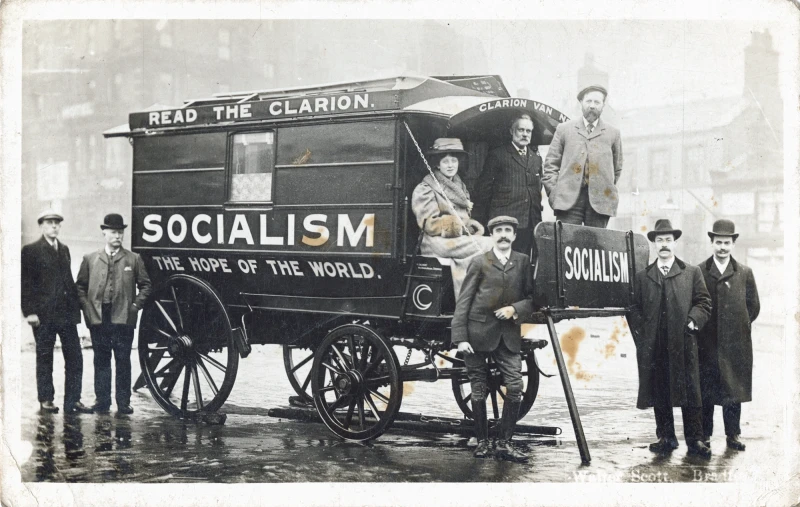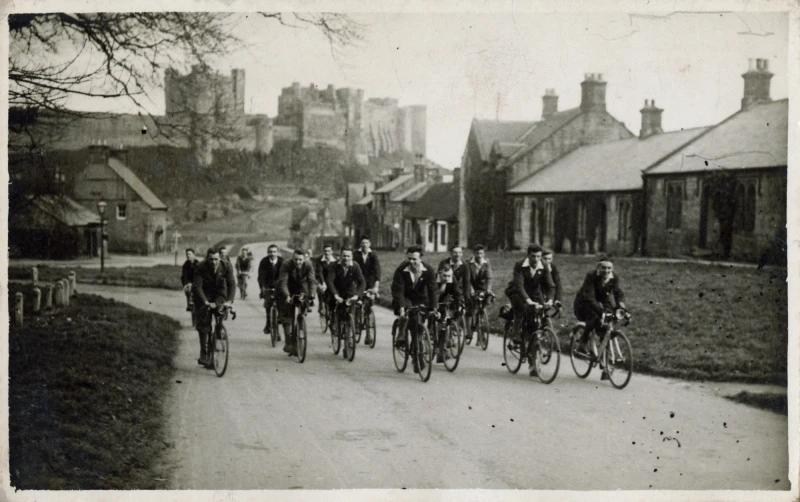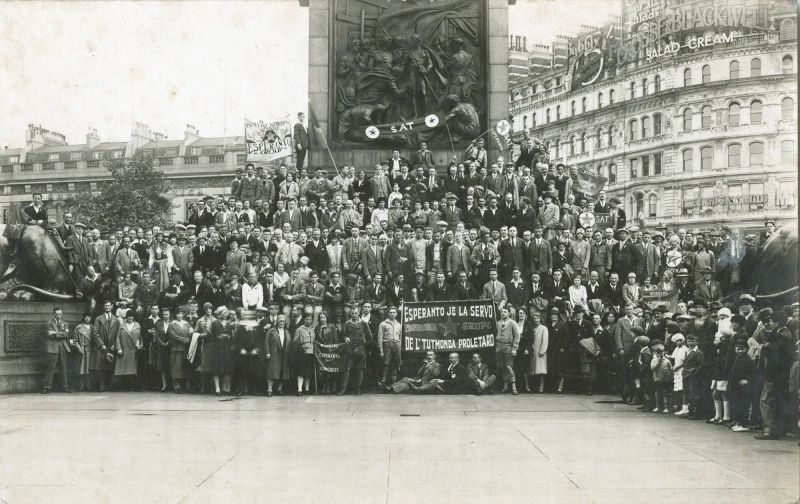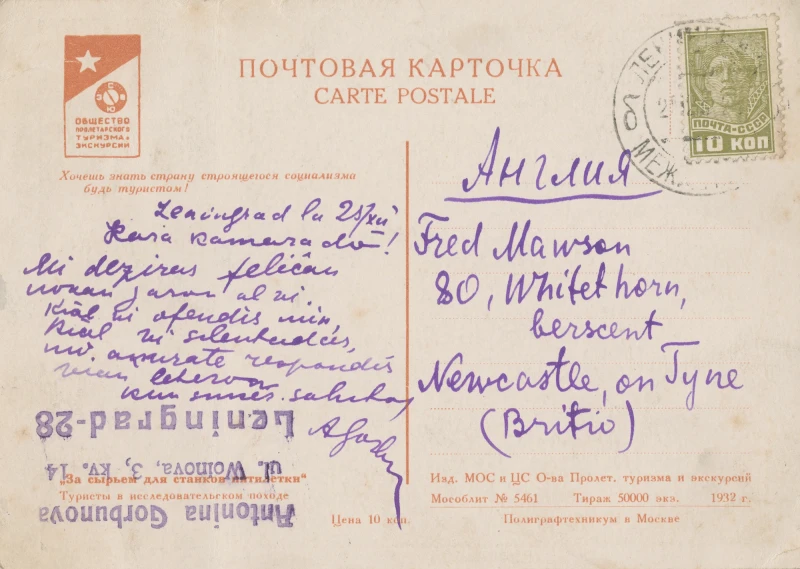Lives Revealed in Boxes: The Fred Mawson Collection
October 3rd, 2025 | Laura LafflerThe AmberSide Collection is a network of interconnected stories of working-class and marginalised communities across the globe. As documentarians, Amber made close connections with families and communities — sometimes resulting in personal archives being donated and accessioned into the collection.
Today, more than 28 boxes of Laurie Wheatley’s papers, T. Dan Smith’s personal archive, and 8 boxes overflowing with letters by Mai – Murray Martin and Sirkka-Liisa Kontinnen’s landlady – sit alongside countless photographs and films. One such gift came from the family of Fred Mawson — a treasure trove of photographs and postcards from the Clarion Cycling Club and an international network of Esperanto speakers. We’ve only been able to scan a selection so far, and we’re always open to volunteers keen to help reveal more.

Fred Mawson: Cycling, Socialism, and a Language of Hope
Fred Mawson, from Cowgate in Newcastle upon Tyne, was a proud member of the National Clarion Cycling Club. His archive includes photographs of socialist cycling meets from the 1920s and ’30s, striking architectural shots, and, perhaps most intriguing, his Esperanto postcard correspondence with pen friends across Eastern Europe.
The Clarion Cycling Club was more than a leisure pursuit. Rooted in the socialist Clarion newspaper, its members carried political discussion and solidarity with them along the miles they travelled. Images in Fred’s archive — from Shipley in 1924 to post-war Czechoslovakia — capture the camaraderie of riders gathered in front of landmarks, their bicycles lined up like a worker’s parade on two wheels.

Esperanto: Building Bridges Across Borders
Created in 1887 by L. L. Zamenhof, Esperanto was designed to be a universal second language — “one who hopes.” For Fred and his comrades, it wasn’t just a linguistic curiosity; it was a political act. If workers across the globe could speak directly to one another, they could unite more effectively.
Fred’s postcards and photographs tell of that commitment:
A comrade in Irkutsk, USSR, holding a balalaika.
Friends in Leningrad and Nurnberg sending greetings in perfect Esperanto.
Trafalgar Square gatherings in the 1930s, the Verda Stelo badge pinned proudly to lapels.
Czechoslovak celebrations for International Women’s Day in 1957.
Each message, handwritten on the back, carried not just news, but proof that friendship and solidarity could thrive across borders — even in the tense climate of the pre-war years and beyond.

Locally Based, Globally Connected
The selection we’ve scanned reveals the texture of a very particular kind of internationalism. Fred’s world was rooted in Cowgate and the North East, but his friendships reached into Russia, Bulgaria, Germany, and Czechoslovakia. These were bonds built on shared ideals, nurtured through cycling meets, socialist congresses, and the green-starred words of Esperanto.
This small part of his collection reminds us that “internationalism” wasn’t always something distant or abstract. For Fred, it was personal — a letter from a friend overseas, a badge worn on a ride, a postcard tucked into a pannier bag. And thanks to his family’s donation, it’s a story we can still tell today.

